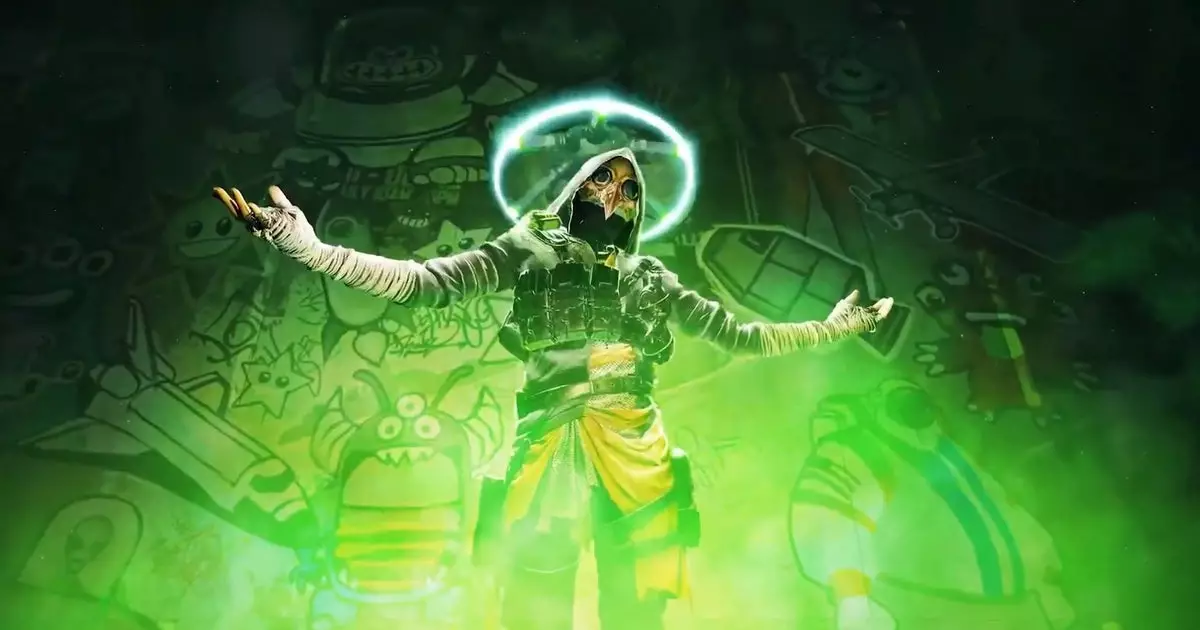Ubisoft’s recent decision to discontinue its PvP shooter, XDefiant, has sent shockwaves through the gaming community and highlighted some pressing issues within the industry. Alongside the game’s termination, approximately 277 employees lost their jobs across multiple studios in San Francisco, Osaka, and Sydney. This move raises significant questions about the future of the games-as-a-service model and the precarious job security that can accompany it.
In an official statement, Ubisoft’s executive Marie-Sophie de Waubert lamented that the game failed to attract sufficient players in the intensely competitive free-to-play FPS market. This admission reveals the harsh reality of modern game development, where even established companies like Ubisoft cannot guarantee success. Approximately 143 employees from the San Francisco studio and 134 from Osaka and Sydney will have to navigate the daunting job market, while the remaining team members will be “transitioning” to other roles within the company. The language here is notable; “transitioning” euphemistically obscures the reality of layoffs as it implies a voluntary change, rather than an involuntary termination.
From June onwards, the servers will remain active, and while the latest content will still be added, new player registrations and purchases have been blocked. The fallout affects gamers too, as recent transactions will be refunded, showcasing the game’s abrupt end. The symbolic gesture reflects not just on the players but also on the prioritization of long-term sustainability versus the quick return on investment in the business model.
Despite the evident turbulence within the games-as-a-service sector, Ubisoft remains steadfast. De Waubert reiterated the company’s commitment to developing games under this model, citing past successes like Rainbow Six Siege and For Honor. However, what is alarming is the apparent blindness to the changing market dynamics. While it is true that these titles persevered through rocky starts, the games-as-a-service framework is increasingly critiqued for its unsustainable pressures on studios and players. The relentless cycle of updates, monetization, and community engagement can lead to burnout for both developers and gamers alike.
In addition, the narrative surrounding the game’s failure puts the blame squarely on the developers rather than the overarching market conditions. As industries evolve, an insatiable demand for innovation often eclipses the value of thorough development cycles. Successes like Siege required time and resources that may not have been available for XDefiant, highlighting a risky gamble often played by executives at larger studios who bear little of the actual developmental costs.
Adding to the complexity of the situation is how Ubisoft management addressed early concerns over XDefiant’s viability. Executive producer Mark Rubin’s assurances just months ago that the game was “not dying” now seem both naive and disingenuous. His statements have been effectively erased from Ubisoft’s public discourse, illustrating a curious pattern of communication within the company. The reassurances given to the gaming community created a fragile trust that has now been shattered by the reality of the shutdown.
Players and developers alike deserve transparency, but this incident has raised doubts about how much nuance the company can offer in terms of accuracy and hope. Unrealistic reassurances generally lead to disappointment and mistrust, damaging the company’s reputation in the long run. A more open dialogue about the challenges faced in developing XDefiant could have prepared both players and employees for an outcome that, while unfortunate, was not entirely unforeseeable.
As Ubisoft charts its path forward, the lessons learned from XDefiant could prove crucial, albeit far too late for those affected by the layoffs. The trend towards prioritizing ongoing monetizable experiences may need a drastic rethink, comforting as it may be for financial projections. The industry landscape is shifting; gamers are growing increasingly critical of poorly executed titles that capitalize on the free-to-play model without delivering substance.
Moreover, with such significant layoffs, a critical need for structural change emerges within the organization. Providing job security for employees and fostering a genuine culture of innovation could help retain talent and potentially revive a floundering game. Ubisoft must not just learn from the failures tied to XDefiant but re-evaluate its entire philosophy surrounding game development in an industry that now requires both creativity and empathy.
The discontinuation of XDefiant is a multifaceted setback not only for Ubisoft but for the gaming industry at large. It serves as a stark reminder that volatile business models and dismissive corporate communication can lead to systemic issues that impact everyone involved in the gaming ecosystem. The stakes are high, and the industry must reckon with the realities of evolving market conditions if it wishes to avoid similar casualties in the future.

